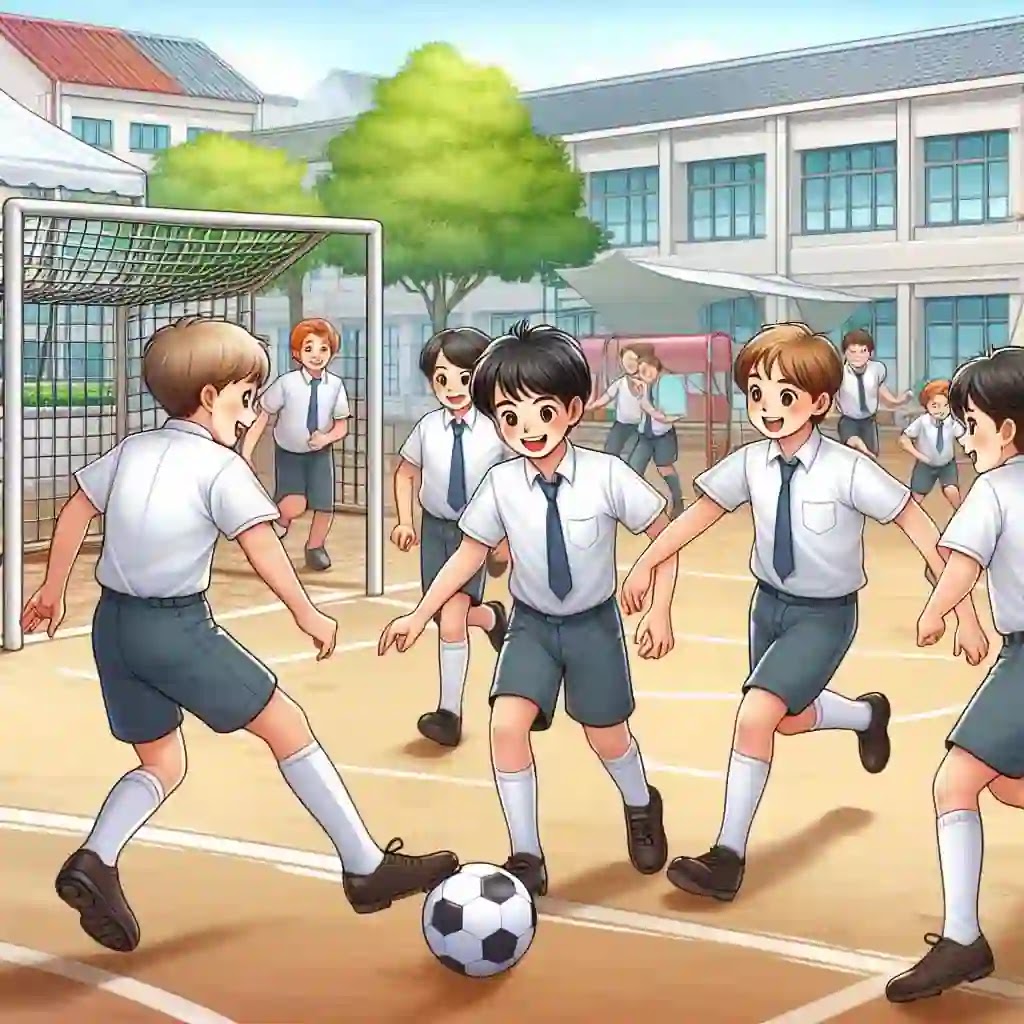500 +Words Essay on My Favourite Game
 |
| My Favourite Game Essay |
My Favorite Game: Football – Rules and Its Scope in the Olympics
Introduction
Football, known as soccer in some countries, is my favorite game. It’s a sport loved by millions worldwide for its simplicity, excitement, and the sheer joy it brings to players and fans alike. Whether played in a sprawling stadium or a small neighborhood park, football unites people with its universal appeal. In this essay, I will explore the fundamental rules of football, its significance in the Olympics, and its broader impact on society.
Basic Rules of Football
The Field and Equipment
Football is played on a rectangular field with a goal at each end. The standard dimensions for a football field are approximately 100-110 meters long and 64-75 meters wide. The equipment needed includes a football, goalposts, and player kits consisting of jerseys, shorts, socks, shin guards, and cleats.
The Players
Each football team consists of 11 players: one goalkeeper and ten outfield players who can be defenders, midfielders, or forwards. The goalkeeper’s primary job is to prevent the opposing team from scoring by guarding the goal. Outfield players work together to control the ball, pass it, and ultimately score goals.
The Objective
The primary objective of football is to score more goals than the opposing team within the allotted time. A goal is scored when the ball completely crosses the goal line between the goalposts and beneath the crossbar.
Gameplay and Regulations
Kick-off and Duration
A football match is divided into two halves, each lasting 45 minutes, with a 15-minute halftime break. The game begins with a kick-off, and the teams switch sides after halftime. Additional time, known as stoppage time, may be added at the end of each half to account for injuries and other interruptions.
Scoring
Goals are scored when a player successfully sends the ball into the opponent’s goal. The offside rule is crucial in football, ensuring that players are not unfairly positioned closer to the opponent’s goal than both the ball and the second-last defender when the ball is passed to them.
Fouls and Misconduct
Players must adhere to the rules to ensure fair play. Common fouls include tripping, pushing, and handling the ball. Depending on the severity of the foul, the referee may award a free kick, penalty kick, or issue yellow or red cards. A yellow card serves as a warning, while a red card results in the player being sent off the field.
Game Officials
A football match is officiated by a referee, who enforces the rules, and two assistant referees, who help monitor the sidelines and offside decisions. In major competitions, a Video Assistant Referee (VAR) system may be used to review controversial decisions.
Importance of Football in the Olympics
Historical Context
Football was first included in the Olympic Games in 1900 for men and in 1996 for women. It has since become one of the most popular and anticipated events in the Summer Olympics.
Olympic Football Format
The Olympic football tournament features both men’s and women’s competitions. Men’s teams are typically restricted to players under 23 years old, with a few exceptions, while women’s teams have no age restrictions. Teams must go through a rigorous qualification process to compete in the Olympics.
Impact on Global Football
The Olympic Games provide a platform for showcasing emerging football talent and promoting the sport in countries where it is less popular. Many players who excel in the Olympics go on to have successful professional careers.
The Scope of Football
Cultural Significance
Football is more than just a game; it is a cultural phenomenon. It brings people together, transcending age, gender, and nationality. Major tournaments like the World Cup and the Olympics foster a sense of global unity and celebration.
Economic Impact
Football generates significant revenue through ticket sales, broadcasting rights, and merchandise. It also creates numerous job opportunities, from players and coaches to support staff and media personnel.
Social Influence
Football has the power to drive social change. It promotes values such as teamwork, discipline, and respect. Initiatives using football for social development aim to address issues like education, health, and social inclusion.
Conclusion
Football, with its simple yet captivating rules, is a game that resonates with people around the world. Its inclusion in the Olympics highlights its global appeal and its ability to unite diverse cultures. Whether playing or watching, football offers countless benefits, from physical fitness and mental well-being to social cohesion and economic opportunities. It is truly more than just a sport; it is a way of life for many.
